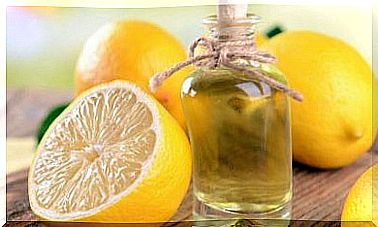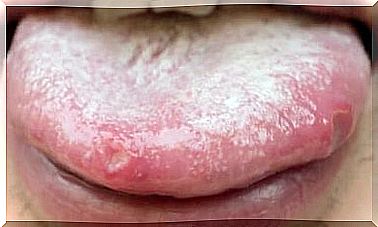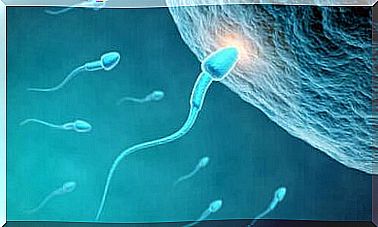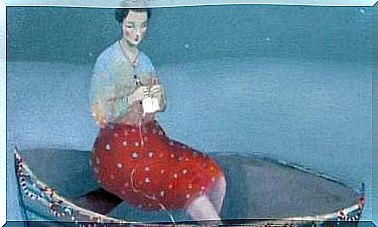Oxytocin, The Love Hormone, Has A Dark Side You Should Know About

Few words represent something as intense, pure and magical as the feeling of oxytocin, also known as the ‘love hormone’. It is at the same time very biological and emotional.
Oxytocin is sometimes known as the love hormone, the hug molecule, the chemistry of happiness and also as the chemical formula of parenting.
For example, oxytocin is of utmost importance at birth. It plays a central role in starting breastfeeding and helping to build the intense bond between mother and child. Without a doubt, this bond is the key to the existence of mankind and many other mammals.
Therefore, this little love hormone, produced in the hypothalamus and secreted by the posterior pituitary gland, is one of the most well-known body substances found. It is basically the chemical essence of love.
But what if we told you that oxytocin hides a side that is not entirely positive ? Do you want to believe that there is a not-so-healthy aspect that might even have a negative impact on your emotional integrity?
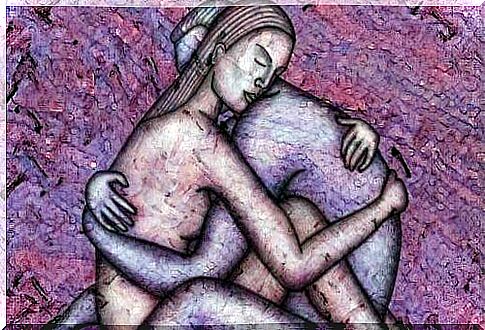
We are sure that this is a topic that many people are interested in learning about. Here we will offer you more information about this multifaceted hormone so you can get a more complete picture of it.
The love hormone and addictive relationships
If you have ever experienced an intimate relationship that was based on addiction, you should know that you probably lived under the influence of some of the darkest aspects of oxytocin. In this type of relationship, feelings of passion block both identity and priorities. You may even get caught up in the other person and forget important aspects of your own life.
It may seem like a loose metaphor and a somewhat simplified comparison. However , neuropsychologists actually commonly compare this form of infatuation with intoxication or intoxication.
In the situation we have described, it is almost like being full of an “overdose” of oxytocin. In this case, you become addicted to a love that hurts but from which you can not free yourself.
Oxytocin and social conditions
This chemical is actually classified as a nonapeptide (that is, a peptide that contains nine amino acids).
- It acts as a hormone and as a cerebral neurotransmitter. It is thanks to this small peptide that we are able to make decisions related to our social interactions. Then we act in social ways by demonstrating qualities like generosity, empathy or altruism.
- It was therefore, until not too long ago, that it was believed that the oxytocin released from the brain was the “key” to reducing the responses to stress and anxiety that can be caused by daily social interactions, even with those we love the most and who is closest to us.
- Today, however, thanks to new research, it has been proven that oxytocin also hides a slightly darker side. In addition, conversely, it also works to promote less healthy relationships. In these , collective occupation leads both parties slowly but surely down the road to self-destruction.
Oxytocin and Alcohol: Substances that predominantly cause us to lose control
The fact that love is sometimes a real chemical wreck is not just a poetic exaggeration – it is a clear reality.
- It is well known that the effects of oxytocin and alcohol share many similarities at the brain level.
- Both mediate the transmission of GABA neurotransmitters in the prefrontal cortex and the limbic structures. In addition, both are able to increase the effect of anxiety or stress. Plus, both have the effect that they reduce the sense of fear we feel when we show certain types of behavior.
- Under the influence of both, we feel more confident, we feel more courageous, and we experience a greater desire to experiment.

Therefore, love based on a passionate euphoria and an almost morbid obsession is almost like being drunk. Thus , it makes it more difficult for us to find an appropriate balance or objective clarity around the situation.
Neurologists and psychologists have been fascinated by the intense effect that oxytocin can have on many people.
But before you start thinking about creating and marketing a new beverage where oxytocin replaces alcohol, you should know that it really is not a sustainable option.
Nevertheless, the possibility of using it to treat certain depressive states as well as clinical disorders is very real.
Love is a very strong substance
We know that when we are in love, our brain releases a magical combination of dopamine, serotonin, norepinephrine … the list goes on.
- Thanks to these neurotransmitters we feel more energy, more passion, more desire to experiment…
- However, oxytocin is the drug that mediates all of this. It promotes the release of these chemicals, which also stimulate the production of an additional, even more intense agent: Phenylethylamine.
- This endogenous chemical compound belongs, as we may be surprised to learn, to the amphetamine family and usually lives in our brains for approx. 4 years in concentrated amounts.

This can help explain the initial period of intense passion, where we are like satellites orbiting a planet, unable to see anything else that exists in the universe.
This is perfectly normal. But it is a state where we must be careful not to lose our inner compass and forget where our north is.
While being in love can be a magical experience, we should make sure that we never compromise on our own integrity and get completely caught up in the whirlwind of intense “intoxicating” emotions caused by a flood of oxytocin to the brain.
